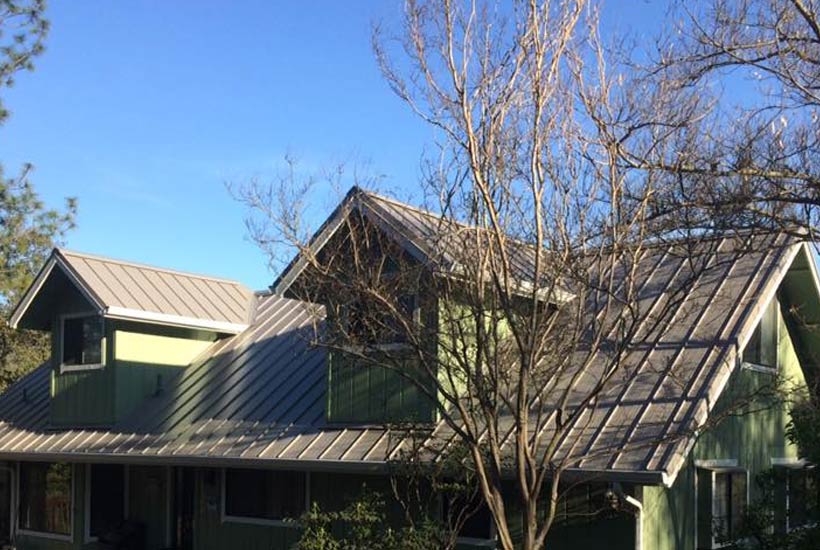While you should generally avoid metal objects in a lightning storm, you don’t need to worry about your metal roof attracting lightning. In fact, it’s actually safer for lightning to hit a metal roof than an asphalt shingle roof. So, how did this myth get started, and how does a metal roof offer extra protection from lightning?
The Lightning Myth
On the surface, worrying about lightning striking a metal roof is reasonable. Metal is a great conductor of electricity. However, lightning is very specific electricity, in that it is always seeking the best path to the ground. That’s why lightning targets trees that are in the middle of an open field; they are the closest path to the ground.
Metal roofing isn’t grounded, so lightning is unlikely to choose it as the best path to the ground. However, like all other roofs, metal roofs are designed to take any potential lightning strike down to the ground without harming occupants inside the home. On large buildings, you may have a lightning rod specifically designed to safely discharge any lightning into the ground if it does strike. These rods are metal, but they also don’t attract lightning.
How Metal Roofs are More Protective During Lightning Strikes
You are relatively safe from lightning strikes when you’re beneath a roof of any kind. However, metal roofs do offer some slight advantages. As metal resists the passage of electricity less than other materials, metal roofs can actually help reduce damage to the building from the strike. Also, as they are not flammable, metal roofs won’t catch fire from the strike, unlike some other roofing materials.
Other Metal Roof Myths
Lightning isn’t the only thing that people misunderstand about metal roofing. A lot of our misunderstanding stems from how we expect the metal to behave. We know it conducts lightning, that it can be loud when struck, and that it rusts. However, metal roofing doesn’t behave exactly like the metal we encounter in everyday household objects.
For example, while we expect metal to be loud if it’s struck by rain, metal roofing isn’t typically louder than asphalt shingle roofing in the rain. In fact, if your metal roof is installed on top of an old shingle roof, it will be even quieter in the rain, as the old shingles are an extra layer of sound dampening.
While you know that the metal on other outdoor objects, like patio furniture, will quickly rust, metal roofing is treated to protect it from the effect of oxidization (and from other environmental effects). This is the same coating that gives metal roofing its color.
You might also think of metal roofing as thin and flimsy. Metal roofing is actually made from very thick metal, typically of high quality. It is significantly more durable than the metal you’d find in your cutlery, for example.
You may be surprised at how metal roofing acts. If you have questions about metal roofing, it’s wise to reach out to the experts and discuss your concerns with them.

